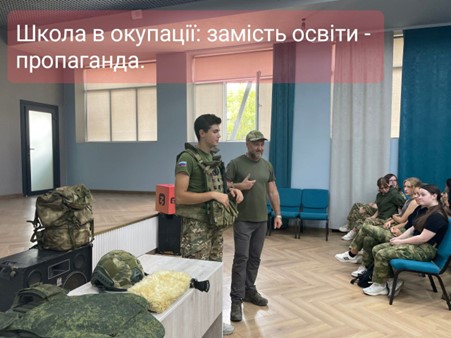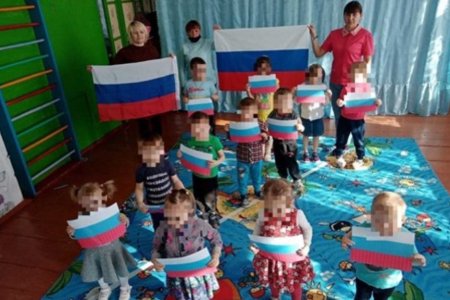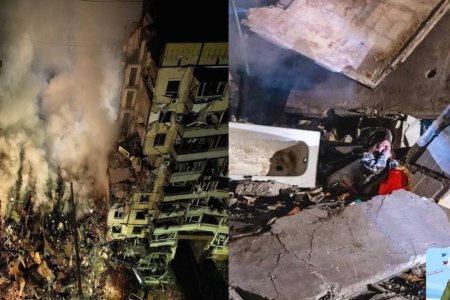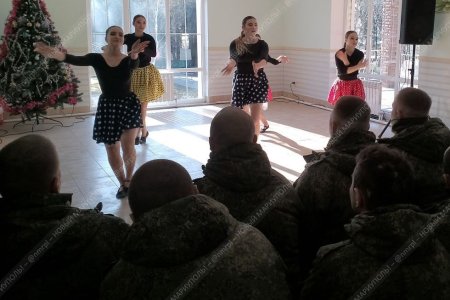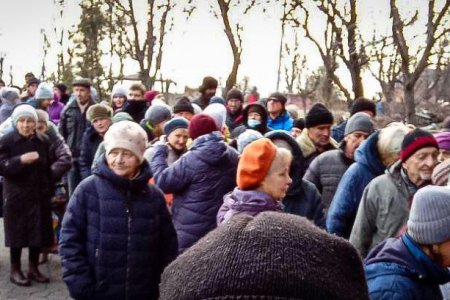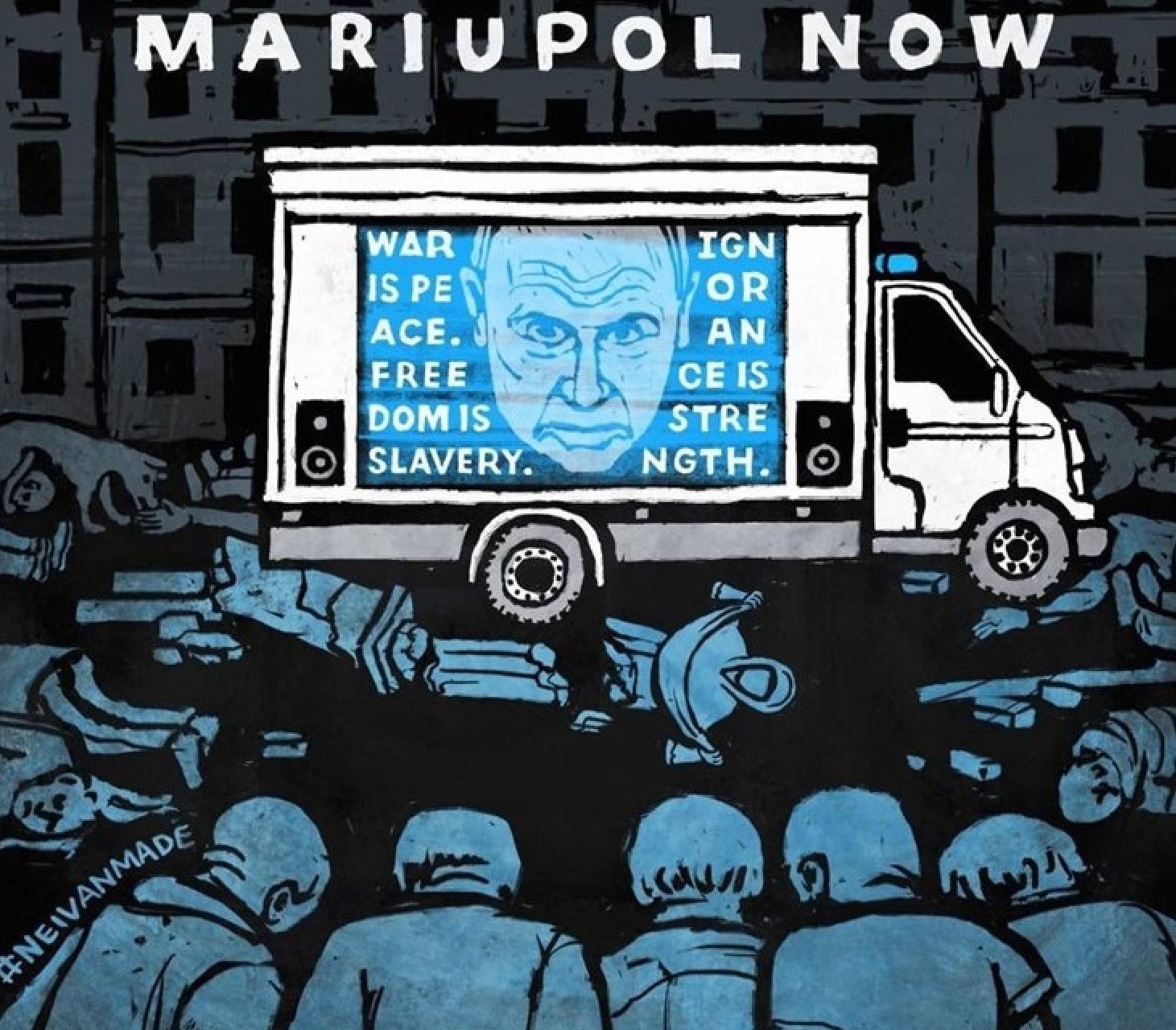
Russian teachers are to undergo training on ‘working with’ children in occupied parts of Ukraine with the aim clearly to brainwash the children and to try to crush their identity as Ukrainians. Efforts to eradicate Ukrainian language and identity, and to convince children that they are ‘Russian’ are nothing new, but it is disturbing that such methods are being flogged as teachers’ ‘professional development’, with the lessons in brainwashing presented as ‘fighting neo-Nazism’.
It was the Russian independent publication Verstka which first drew attention to the free course offered by Znanie [Knowledge], an organization reinstated in 2016 from the former Soviet organization and lavishly funded by the Kremlin. Verstka points out that, since Russia’s full-scale invasion of Ukraine, Znanie has carried out hundreds of ‘patriotic events’, including lectures about this war of aggression which Moscow calls a ‘special military operation’; measures pushing Moscow’s distortion of historical facts, as well as numerous meetings, often in schools, with those fighting against Ukraine.
This new course also closely follows the Kremlin’s narrative about supposed ‘neo-Nazism’ as what Russia is fighting against in Ukraine. In effectively declaring war at 4 a.m. on 24 February 2022, Russian leader Vladimir Putin claimed that his war of aggression was a ‘special military operation aimed at the denazification and demilitarization of Ukraine’. The claim was condemned by Ukrainian Jewish leaders and survivors of the Holocaust and has been rightly dismissed as a cynical ploy by the international community. Despite obvious bemusement, not least at the suggestion that Ukraine’s Jewish President is a ‘Nazi’, this remains official Russian narrative, with Znanie citing Putin in claiming that “there are all grounds to consider the current leadership of Ukraine to be a neo-Nazi regime”
Although Znanie’s optional and free course claims to be about ‘how to protect school students from propaganda of Ukrainian neo-Nazism and recruitment’, the proposed sections of the course make it quite clear what the course, and Moscow, are fighting. They include: ‘Russophobia as a component part of neo-Nazi threats for Russia’; the reasons for the ‘special military operation’ for Russia’s national security; ‘contemporary historical myths in Ukrainian nationalist propaganda’ and legislation on countering ‘terrorism and extremism’. The teachers will also be given guidelines for detecting signs that children have been ‘recruited’, in other words that they remain conscious of their Ukrainian identity.
They will also, “of course”, be instructed on how to create, what is termed, “positive prophylactic content”. Within ten days of Russia’s full-scale invasion of Ukraine, Putin had signed into force a law introducing four new ‘offences’, making it possible to sentence people to up to 15 years for telling the truth about Russian bombing of civilians and other war crimes in Ukraine. Only such ‘positive content’, which echoes official lies is now permitted, with it such ‘content’ that teachers will clearly be instructed how to write and present to their students.
Verstka has probably ‘signed up’ for the course, since it provides copies of information that is not available without registration. This includes claimed “myths about Ukraine” that the ‘historians’ and other creators of the course would appear to have simply invented (that Adam and Eve; Jesus Christ; and the Buddha “were Ukrainians”, and others). Such absurdities are presumably aimed at deflecting attention from the other, entirely legitimate facts of Ukrainian history which Russia has tried to appropriate, in particular the first centuries of Kyivan Rus’. The authors have also come up with a table purporting to trace “the road to” what is everywhere called ‘the special military operation’, with this beginning in 1900! The supposedly ‘shocking’ elements of Ukrainian nationalism from that year include the affirmation of an independent Ukrainian state and the “idea” that Ukrainians should speak Ukrainian.
In the section on ‘work’ with children from occupied Ukrainian territory or from ‘refugee’ families, the focus is clearly on pushing the idea that it is only as part of Russia that Ukrainian youth can get a good education, flourish, etc. Znanie claims that all that Ukraine can give them are “destruction; suffering; poverty and the erasing of traditional values” without mentioning that it is Russia that brought the destruction, etc.
Znanie is following official Moscow in pushing pseudo historical justification for Russia’s full-scale invasion, including the claim that the parts of Ukraine under Russian occupation are “Russia’s historical territory”. The ‘work’ with Ukrainian children is to be aimed at conning them into accepting such narrative as if it is their own. Andrei Lavrentiev, the head of the internationally sanctioned ‘Movement of the First’ in occupied Kherson oblast, is quite open about what such ‘education’ is really about. He proposes “reformatting” the children’s identity, while claiming that this “would rather be to return their traditional Russian identity.”
Worth noting that Moscow’s attempt to present its war against Ukrainian language, culture and identity as efforts to ‘counter neo-Nazism’ are not just knowingly false. They are also extraordinarily cynical given Moscow’s cultivation (and significant funding) of far-right and neo-Nazi movements throughout the world. It is the latter that are are most aggressive in supporting the Kremlin and opposing help to Ukraine, and who can be relied upon to provide effusive praise for fake ‘referendums’ and ‘elections’ at gunpoint on occupied territory.
See also:
Putin supports war propaganda ‚lessons for pre-school children in Russia and occupied Ukraine
